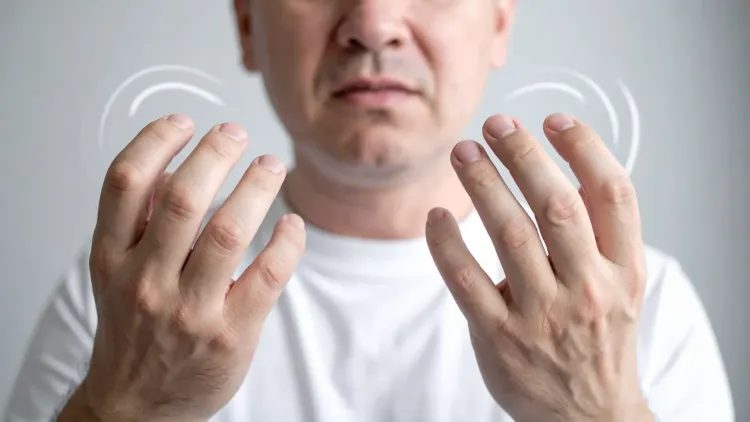Can Poor Air Quality Lead to Severe Rheumatoid Arthritis?

Synopsis
Key Takeaways
- Poor air quality is linked to increased cases of rheumatoid arthritis.
- Pollutants can cause inflammatory reactions that worsen joint damage.
- Urbanization and reduced green spaces contribute to health risks.
- Public health initiatives are crucial for managing pollution-related diseases.
- Rheumatoid arthritis requires long-term management strategies.
New Delhi, Oct 9 (NationPress) Poor air quality may not only be damaging your lungs, but it could also harm your joints, potentially resulting in severe rheumatoid arthritis, as indicated by experts on Thursday.
Rheumatoid arthritis (RA) is a persistent autoimmune condition where the immune system mistakenly attacks the body’s own tissues, particularly the joints, leading to chronic pain, swelling, stiffness, and even disability.
Historically attributed to genetic factors and immune system malfunctions, RA is increasingly being linked to environmental influences such as air pollution.
Recent research from Europe, China, and now India points to exposure to PM2.5—the harmful fine particulate matter that deeply penetrates the lungs—not only contributing to heart and lung ailments but also to autoimmune diseases like RA.
“We are witnessing an increase in RA cases among individuals living in polluted regions without a family history or genetic susceptibility to autoimmune conditions. Pollutants incite inflammatory responses, worsening joint damage and advancing disease progression,” stated Dr. Uma Kumar, who leads the Rheumatology department at AIIMS, New Delhi.
“These toxins induce systemic inflammation and oxidative stress, leading to an exaggerated immune response. This is a public health crisis that demands immediate attention,” Dr. Kumar emphasized during the 40th Annual Conference of the Indian Rheumatology Association (IRACON 2025) held at Yashobhoomi, Dwarka.
Current estimates suggest that RA impacts about 1% of India’s adult population, but with pollution acting as a catalyst, these figures could escalate significantly.
Dr. Pulin Gupta, a Professor and Rheumatologist at Dr. Ram Manohar Lohia Hospital, noted that pollution-related RA cases tend to be more severe than their non-pollution counterparts.
“What we are observing is not merely an increase in RA cases but also a rise in severity. Patients exposed to higher levels of PM2.5 are showing more aggressive disease that advances more rapidly. The diminishing green spaces in urban locales are exacerbating this issue, robbing residents of essential environmental shields,” Dr. Gupta remarked.
Research has demonstrated a strong correlation between exposure to PM2.5, nitrogen oxides, and ozone, with an elevated risk of RA and aggravated symptoms, particularly in genetically vulnerable individuals. Proximity to busy roads, associated with constant traffic-related pollution, has also been linked to a heightened risk of RA.
Experts highlighted that autoimmune diseases like RA are chronic conditions with no definitive cure, only management strategies.
Health professionals underscored the immediate need for coordinated efforts: stricter pollution regulations, heightened public awareness, early screening for at-risk individuals, and lifestyle modifications to minimize exposure. They also advocated for the expansion of urban greenery, cleaner transportation alternatives, and robust national policies that connect air quality with health outcomes.









